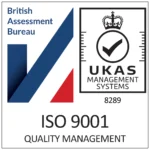A sewage treatment plant is a self-contained underground system designed to process and purify wastewater from homes, businesses, or small communities.
Instead of sending waste to the mains sewer, the plant treats the incoming wastewater on site. Through a series of biological and mechanical stages, solids are separated, and the remaining liquid is treated to a standard that allows safe discharge — either to a soakaway system or, where permitted, directly into a local watercourse.
The positioning and design of each treatment plant must comply with Environment Agency (EA) regulations to ensure safe and sustainable operation.
These systems are commonly installed in rural or off-grid properties where there is no access to the public sewer network. They offer an efficient, environmentally responsible, and often more cost-effective alternative to laying long lengths of connection pipework. By treating wastewater on site, a sewage treatment plant reduces infrastructure costs while maintaining high environmental standards.





